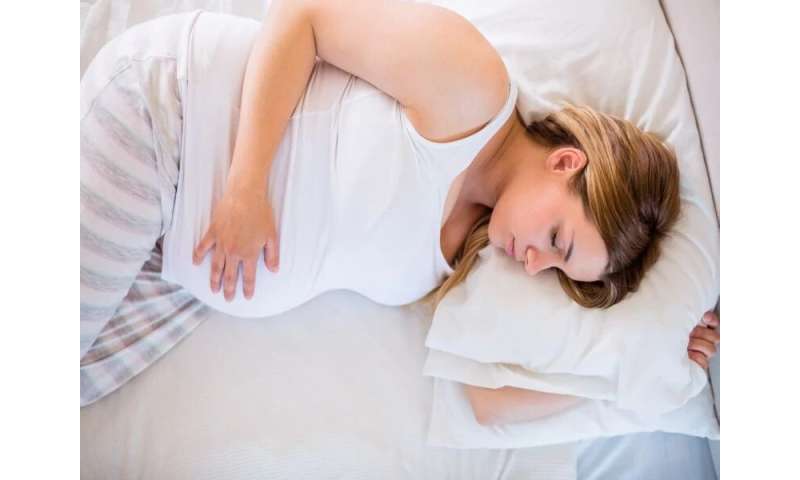
(HealthDay)—Back sleeping in late pregnancy is independently associated with lower birth weight, according to a study published online Oct. 2 in JAMA Network Open.
Ngaire H. Anderson, Ph.D., from University of Auckland in New Zealand, and colleagues evaluated the association between the position in which pregnant women went to sleep and infant birth weight. Individual participant data consisted of a meta-analysis of four case-control studies investigating sleep and stillbirth in New Zealand, Australia, and the United Kingdom.
The researchers found that among 1,760 women, 3.2 percent reported they usually went to sleep in a supine position during the previous one to four weeks. Among women who reported sleeping in the supine position, the adjusted mean birth weight was 3,410 g versus 3,554 g among women who reported sleeping in a nonsupine position (adjusted mean difference [aMD], 144 g; 95 percent confidence interval [CI], −253 to −36 g; P = 0.009), representing an approximate 10-percentile reduction in adjusted mean INTERGROWTH-21st birth weight centiles (48.5 versus 58.6; aMD, −10.1; 95 percent CI, −17.1 to −3.1) and customized centiles (40.7 versus 49.7; aMD, −9.0; 95 percent CI, −16.6 to −1.4) . At less than the 50th INTERGROWTH-21st centile, there was a nonsignificant increase in birth weight (adjusted odds ratio [aOR], 1.90; 95 percent CI, 0.83 to 4.34) and a twofold increase in birth weight at less than the 50th customized centile (aOR, 2.12; 95 percent CI, 1.20 to 3.76). Using INTERGROWTH-21st standards, going to sleep in the supine position was associated with a threefold increase in small-for-gestational-age birth weight (aOR, 3.23; 95 percent CI, 1.37 to 7.59) and a nonsignificant increase in small-for-gestational-age birth weight customized standards (aOR, 1.63; 95 percent CI, 0.77 to 3.44).
Source: Read Full Article






